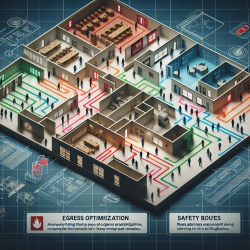Introduction
The Ebola outbreak that began in West Africa in 2013 was a wake-up call for the global community, exposing the vulnerabilities in our preparedness for infectious disease outbreaks. The Harvard-LSHTM Independent Panel on the Global Response to Ebola has proposed ten essential reforms to mend these weaknesses and prepare for future pandemics. This blog will explore these reforms and how practitioners, particularly in educational and therapeutic settings, can enhance their skills and readiness.
Understanding the Reforms
The panel's recommendations are categorized into four thematic areas: preventing major disease outbreaks, responding to outbreaks, research and technology sharing, and governance of the global system. Here’s a closer look at how these reforms can be integrated into your practice:
1. Preventing Major Disease Outbreaks
- Invest in Core Capacities: Schools and therapy providers should develop robust health monitoring systems to detect and respond to potential outbreaks quickly. This involves training staff in health surveillance and emergency response.
- Early Reporting Incentives: Encourage transparency and early reporting of health issues within educational settings. Establish clear communication channels with local health authorities to facilitate rapid response.
2. Responding to Major Disease Outbreaks
- Unified Emergency Response: Develop a coordinated response plan that includes all stakeholders—schools, health departments, and therapy providers. This ensures a unified approach in managing health crises.
- Standing Emergency Committee: Establish a dedicated team within your organization to oversee health emergencies, ensuring quick decision-making and resource allocation.
3. Research and Technology Sharing
- Data and Sample Sharing Framework: Encourage collaboration with research institutions to access the latest data and technologies. This can enhance the development of effective health interventions in schools.
- Global Research Facility: Advocate for investment in research and development of health technologies relevant to educational settings, such as online therapy tools and diagnostic equipment.
4. Governing the Global System
- Global Health Committee: Participate in global health discussions and initiatives to stay informed about international health policies and practices.
- Focused WHO Mandate: Support reforms that streamline WHO’s functions to focus on core health issues, ensuring better guidance and support for educational institutions during health crises.
Implementing the Reforms in Practice
As a practitioner, integrating these reforms into your daily operations can significantly enhance your preparedness for future health crises. Here are some actionable steps:
- Regularly update health and safety protocols in line with the latest global health guidelines.
- Invest in training programs for staff on emergency response and health monitoring.
- Foster partnerships with local health authorities and research institutions to stay ahead of emerging health threats.
- Utilize online platforms for therapy and education to ensure continuity of services during outbreaks.
By taking these steps, you not only safeguard the health of your students and staff but also contribute to a more resilient global health system.
To read the original research paper, please follow this link: Will Ebola change the game? Ten essential reforms before the next pandemic. The report of the Harvard-LSHTM Independent Panel on the Global Response to Ebola.










